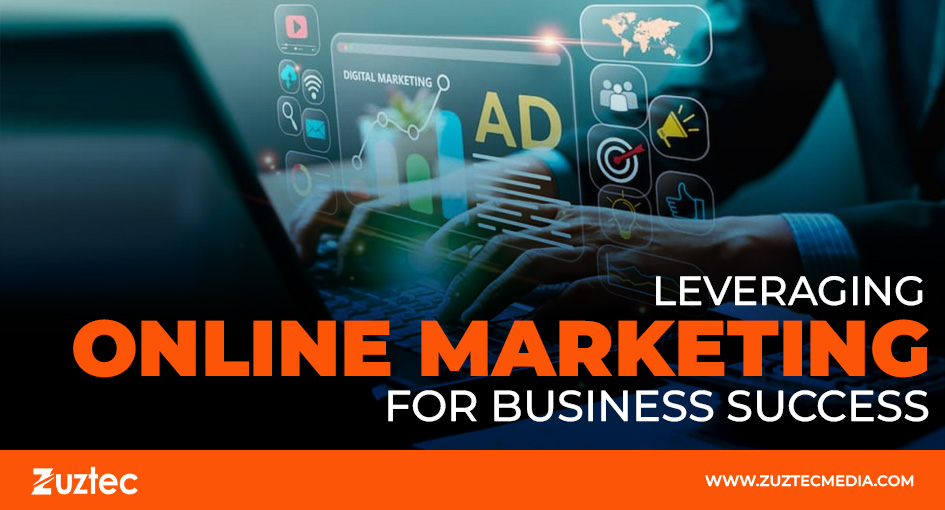
Leveraging Online Marketing for Business Success
In today’s highly connected digital world, online marketing has become an essential strategy for businesses aiming to thrive. The internet offers a unique opportunity for companies to reach a vast audience, build brand recognition, and engage with customers in ways that were once impossible. Traditional marketing methods, such as print or TV ads, have their limitations, but digital marketing provides the flexibility to connect with target customers anywhere, at any time.
Digital marketing encompasses a wide range of strategies, all designed to reach potential customers through various digital channels, including social media, search engines, email, content marketing, and paid advertising. What makes digital marketing particularly powerful is its ability to provide measurable results, offering businesses a clear understanding of what’s working and what isn’t.
For businesses of all sizes, embracing internet marketing is no longer optional—it’s a critical component of growth. Whether a startup or an established brand, leveraging internet marketing strategies can lead to improved customer engagement, enhanced brand visibility, and increased revenue. In this article, we will explore the core components of digital marketing, its benefits, and how businesses can use it to their advantage.
Key Components of Online Marketing
Online marketing is a broad term that covers various strategies designed to promote products and services via digital platforms. Some of the most popular methods include:
Search Engine Optimization (SEO)
Search engine optimization helps websites achieve better rankings in search engine result pages. By improving factors like website structure, keywords, and content quality, businesses can attract organic traffic from users actively searching for related products or services. SEO is a long-term strategy, but it offers significant ROI once the website gains higher visibility.
Social Media Marketing (SMM)
Social media platforms such as Facebook, Instagram, LinkedIn, and Twitter have become powerful marketing tools. Social media marketing allows businesses to directly engage with their audience, share valuable content, and promote products through organic posts or paid ads. It also helps build brand awareness and trust through customer interaction.
Content Marketing
Digital marketing emphasizes producing meaningful, applicable, and regular material to engage and keep a specific target market. This includes blog posts, videos, podcasts, infographics, and eBooks. By providing informative and helpful content, businesses can position themselves as industry authorities and establish stronger relationships with their audience.
Email Marketing
Email marketing remains a staple of online advertising, offering a personalized and direct way to communicate with customers. By sending targeted emails, businesses can promote new products, share exclusive offers, or nurture leads through automated campaigns. Digital campaigns can be precisely monitored, enabling companies to measure engagement, response rates, and results.
Pay-Per-Click Advertising (PPC)
PPC ads, such as those on Google Ads or Facebook, allow businesses to target specific demographics and pay only when a user clicks on the ad. This form of advertising can quickly generate traffic and leads but requires careful planning and budget management to ensure a positive return on investment.
Benefits of Online Marketing
The benefits of digital marketing are numerous, making it a powerful tool for businesses aiming to increase their visibility, drive engagement, and grow their customer base. Here are some of the primary advantages:
Wider Reach and Accessibility
With billions of people using the internet every day, online advertising provides businesses with an unprecedented opportunity to reach a global audience. Whether you’re targeting local customers or looking to expand internationally, online advertising offers the flexibility to reach potential customers anywhere, at any time.
Cost-Effective
Compared to traditional marketing, digital marketing is often more affordable. Platforms like social media and email allow businesses to reach large audiences with relatively low investment. Even small businesses with limited budgets can create effective campaigns that produce strong results.
Targeted Campaigns
Internet marketing allows for precise targeting based on a variety of factors, such as demographics, interests, behaviors, and location. This means that businesses can tailor their campaigns to reach the most relevant audience, increasing the likelihood of conversion.
Real-Time Analytics and Measurable Results
Unlike traditional marketing, online advertising provides businesses with real-time data and analytics. Metrics such as traffic, engagement, click-through rates, and conversions help businesses assess the performance of their campaigns and make adjustments as needed for optimal results.
Improved Customer Engagement
With the ability to interact with customers through social media, email, and live chat, businesses can foster deeper connections and build stronger relationships. This increased engagement leads to greater brand loyalty and trust, which are essential for long-term success.
Challenges in Online Marketing
While digital marketing offers numerous advantages, businesses should also be aware of its challenges:
Increased Competition
As more businesses embrace online advertising, standing out in the crowded digital space can be difficult. To succeed, businesses must differentiate themselves through creative campaigns, high-quality content, and data-driven strategies.
Keeping Up with Changes
The digital marketing landscape is constantly evolving, with new technologies, trends, and algorithms shaping how businesses reach their customers. Staying up-to-date and adapting to these changes is essential for maintaining a competitive edge.
Budget Management
While internet advertising is cost-effective, it still requires an investment of time, resources, and money. Managing marketing budgets, particularly for paid advertising, can be challenging for businesses, especially those with limited funds.
In the end, online marketing is a powerful tool that allows businesses to reach a vast audience, build brand awareness, and drive growth. By embracing strategies such as SEO, social media marketing, content marketing, and PPC, businesses can create targeted campaigns that produce measurable results. Despite challenges such as competition and budget management, the benefits of internet marketing far outweigh the obstacles. For businesses looking to thrive in the digital age, mastering digital marketing is crucial. Whether you’re looking to expand your customer base, increase conversions, or enhance customer engagement, digital marketing offers endless opportunities for growth and success.

